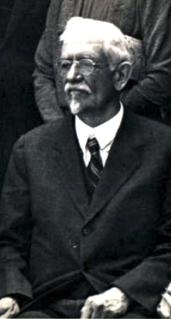A Quote by Clayton Christensen
But actually theory is very practical. Gravity is a theory, for example. It allows you to predict that if you step off a cliff you will fall; you don't have to collect data on that.
Related Quotes
We went to the moon using just Newton's laws of motion and gravity. Newtonian dynamics we call it. So then we find out, "Well, this works because there's certain regimes we've never tested it in." Had we done so, we would show that it didn't work: For example, at very high speeds, very high gravity, Newton's laws fail. They just fail. You need Einstein's laws of motion and gravity. Those would be his special theory of relativity and general theory of relativity. Now you invoke those and it works.
In arriving at the relevant theory about the specifics of our faculty of vision we will presumably use our eyes to gather relevant data. Based on such data we come to know about the optic nerve, the structure of our eyes, the rods and cones, etc., so as to explain how it is that vision gives us reliable access to the shapes and colors of objects around us. In reliably arriving at that theory we thus exercise the very faculty whose reliability is explained by the theory. There is no vice in this sort of circularity.
The supposed astronomical proofs of the theory [of relativity], as cited and claimed by Einstein, do not exist. He is a confusionist. The Einstein theory is a fallacy. The theory that ether does not exist, and that gravity is not a force but a property of space can only be described as a crazy vagary, a disgrace to our age.
Disruptive technology is a theory. It says this will happen and this is why; it's a statement of cause and effect. In our teaching we have so exalted the virtues of data-driven decision making that in many ways we condemn managers only to be able to take action after the data is clear and the game is over. In many ways a good theory is more accurate than data. It allows you to see into the future more clearly.
No theory ever benefited by the application of data, Amy. Data kills theories. A theory has no better time than when it's lying there naked, pure, unsullied by facts. Let's just keep it that way for a while." "So you don't really have a theory?" "Clueless." "You lying bag of fish heads." "I can fire you, you know. Even if Clay was the one that hired you, I'm not totally superfluous to this operation yet. I'm kind of in charge. I can fire you. Then how will you live?" "I'm not getting paid." "See, right there. Perfectly good concept ruined by the application of fact.
Evolutionary theory, properly understood, does not conflict with the idea that God occasionally intervenes in nature - for example, by once or twice causing a beneficial mutation to occur. Biologists have not detected any such interventions despite the data and theory they have assembled about mutation. However, I think it is a mistake to expect biological experiments to be able to detect such one-off acts of divine intervention, especially if those acts occurred in the distant past. Science isn't in that line of work.
The incomplete knowledge of a system must be an essential part of every formulation in quantum theory. Quantum theoretical laws must be of a statistical kind. To give an example: we know that the radium atom emits alpha-radiation. Quantum theory can give us an indication of the probability that the alpha-particle will leave the nucleus in unit time, but it cannot predict at what precise point in time the emission will occur, for this is uncertain in principle.
































